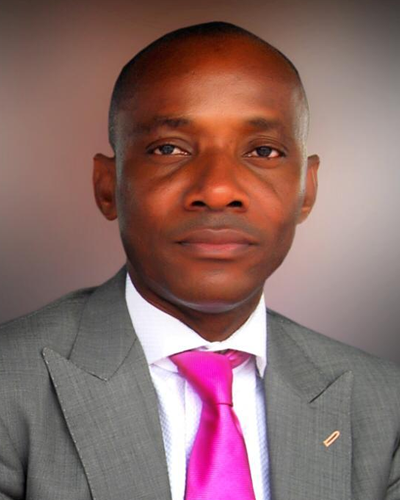Given Nigeria’s current socio-economic situation, what the country needs is an ethical leadership that understands the yearnings of the people.
That was the declaration of Dr. Sam Amadi, a public intellectual and policy expert at a recent event in Abuja.
Amadi who was speaking at the presentation of a new book chronicling the 2023 presidential election, noted that Nigeria stands at the precipice of a national rebirth and must embrace a ballot-based revolution to reverse decades of decline.
He argued that only a bold, transformative shift in leadership and values can rescue the country from worsening poverty, inequality, and institutional decay.
Addressing the Obiedient movement audience with clarity and urgency, he said, “Nigeria is not just failing — it is contradicting itself. Every attempt to solve our problems begins with the wrong diagnosis. “In many cases, we’ve been fighting imaginary or misunderstood enemies.”
Quoting development economist Douglass North, he noted that economic development should be assessed through poverty, unemployment, and inequality.
“If these are the yardsticks, then Nigeria is sinking. By 2019, we became the world’s poverty capital. In 2025, we’re still hemorrhaging — 20 million more people are projected to fall into poverty this year alone.”
He decried what he called a “nationality crisis,” stressing that a functional economy begins with a shared identity and purpose.
“We are not a nation in any real sense. We are a fragile geographic construct, fractured by ethnicity, religion, and value collapse. In such a system, merit is punished, excellence is sidelined, and corruption becomes our default operating system.”
Amadi traced Nigeria’s leadership crisis to elite capture, low-energy politics, and a deliberate culture of stagnation.
“Our political system has been hijacked by transactional elites. Governance has turned into a game of return tickets, personal deals, and ethnic arithmetic — all at the people’s expense. We need high-energy, people-centered politics.”
He said, “Peter Obi has the pedigree, passion, and personality to lead this revolution. What we need is not just a leader, but a movement. A revolution not of blood, but of ballots — one that insists on ethical leadership, democratic civilization, and true productivity.”
He warned that time is short and the cost of failure high.
“If Nigeria does not change at the ballot, it risks collapse through chaos. The only revolution that will save us is one driven by values, not violence. And the time is now.”
Amadi called for a fundamental reset of Nigeria’s political imagination—anchored not in elite patronage or ethnic alliances, but in a radical redefinition of leadership, governance, and national purpose.
“The idea that politics must be ethnic, religious, or tethered to so-called big names is a myth. We must reject the belief that billionaires are essential to win elections or that a broken electoral commission and politicized judiciary cannot be transformed. These are lies — self-reinforcing traps.”
He argued that a convergence of technology, social consciousness, and a bold new generation now makes it possible to upend the status quo:
“Today, non-officials can create a new political order. The people can build a movement beyond religion, ethnicity, or money. Nigeria’s shared destiny—whether to perish or prosper—transcends tribe.”
He also condemned the political class for weaponizing ethnic and religious divisions to retain power.
“Poverty rides freely across every region. Why should development be resisted on geopolitical grounds? It’s time for a Nigerian movement that speaks to every Nigerian.”
At the heart of his message was the idea of a “developmental consensus” — a governance model focused on economic growth, social welfare, and inclusion.
“True democracy rests on three pillars: political justice, economic justice, and inclusive prosperity. But Nigerian politics has abandoned these. We need leadership that is obsessed — yes, obsessed — with development.”
Drawing from global examples, he cited Lee Kuan Yew, Deng Xiaoping, and General Park as leaders who transformed their nations through unwavering focus on growth.
“No country has ever developed without a leadership that agonizes daily over its economy. Transformation doesn’t come from scattered policies — growth must be deliberate.”
Amadi criticized grandiose infrastructure projects like the coastal road initiative, arguing that development should be judged by outcomes, not optics.
“Projects must expand productivity and improve human capital. Without tangible outcomes, they are just vanity.”
He made a strong case for Peter Obi as the right leader for this political and economic turning point.
“Leadership is not about charisma; it’s about character. Obi’s life, choices, and experience show a man driven by discipline, intelligence, and commitment to the common good.”
Referencing Obi’s tenure as Governor of Anambra State, Amadi highlighted his record on security, infrastructure, and fiscal discipline. More critically, he praised Obi’s ability to break from the neopatrimonial systems that have stifled Nigeria’s progress.
“This country is on the edge. We need someone who can cut through the networks of patronage and lead with fierce clarity.”
Rejecting the idea that leadership requires theatrics or rule-breaking, he said, “Nigeria doesn’t need a leader who breaks bottles. It needs one who persuades intelligently, leads with soft power, and delivers strategic results.”
Amadi saluted the youth-led political awakening of 2023 saying, “Those young men and women — mocked, blackmailed, suppressed — won six million votes, twelve states, and changed the course of our politics. They showed us what’s possible.”
With references to Singapore’s rise and warnings of Nigeria’s relative decline behind smaller West African nations, Amadi challenged the nation’s youth and thinkers saying, “We are not yet a great country. We are still stumbling. But if our young people reflect, organize, and act on what they believe, they can disrupt the old order. They can make Nigeria new again.”


